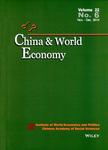Housing Markets in China and Policy Implications:Comovement or Ripple Effect
Housing Markets in China and Policy Implications:Comovement or Ripple Effect作者机构:Department of FinanceChung-Yuan Christian University
出 版 物:《China & World Economy》 (中国与世界经济(英文版))
年 卷 期:2014年第22卷第6期
页 面:103-120页
核心收录:
学科分类:12[管理学] 0202[经济学-应用经济学] 1204[管理学-公共管理] 1202[管理学-工商管理] 0201[经济学-理论经济学] 0701[理学-数学] 120405[管理学-土地资源管理]
主 题:causality test housing prices long-run equilibrium ripple effect
摘 要:The overheated housing market has recently become a top priority of the Chinese authorities and whether the ripple effect exists is key to understanding this housing issue. The present paper uses a cointegration estimation technique for six first-tier Chinese cities during the 2003-2013 period to show that the comovements among housing prices in China are fully reflected in a long-run equilibrium. Using the Toda- Yamamoto causality test, the ripple effect is found to be characterized by a lead -lag relationship. More importantly, it is found that Beo'ing is the main source of housing price appreciation in China, and should be targeted as the regulatory object to efficiently resolve the troubles in this increasingly high housing-price era.



